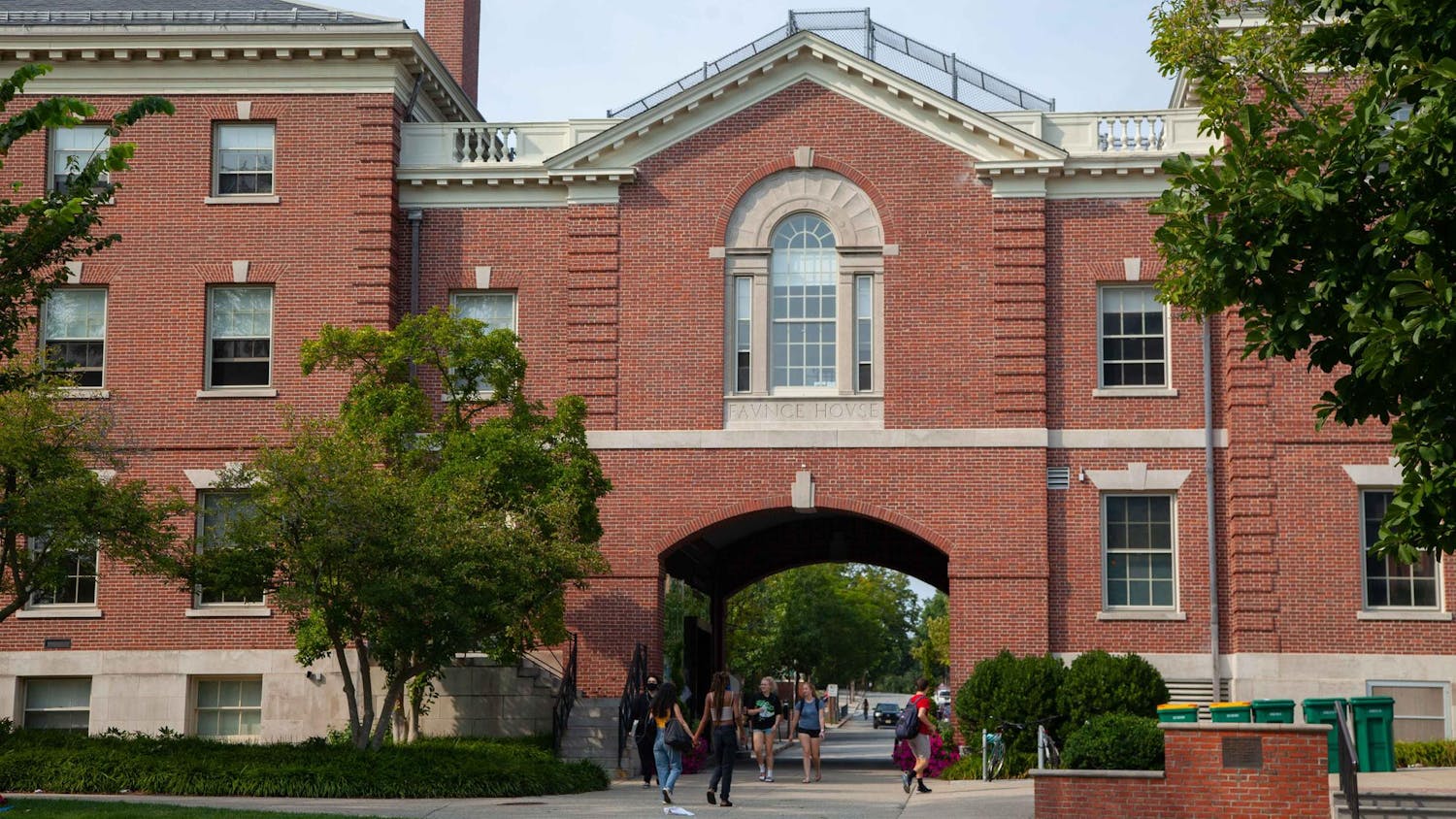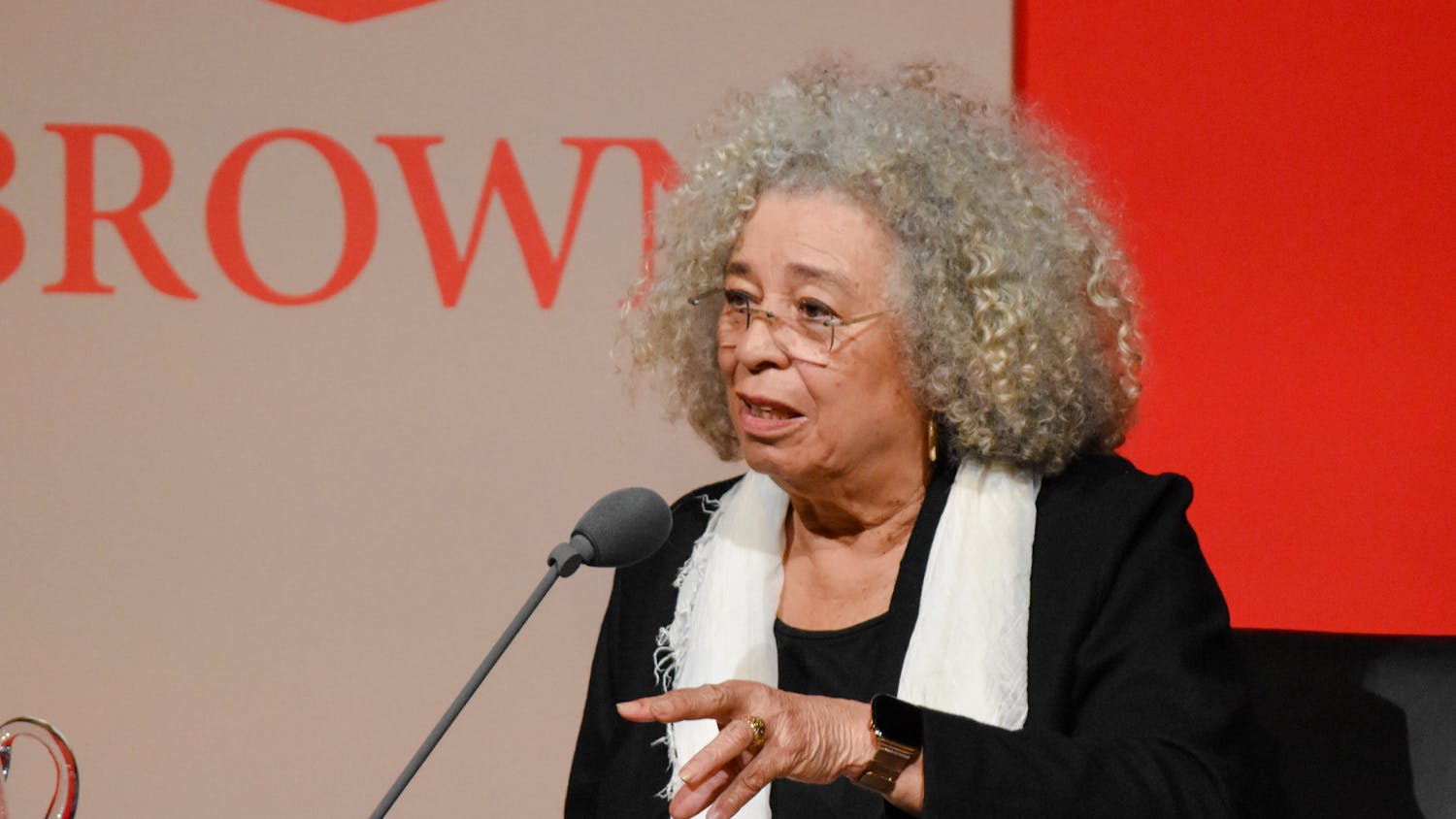Faculty members voiced concerns over President Christina Paxson’s strategic plan draft at a faculty meeting Tuesday, taking issue with the absence of the term “university-college,” its commitment to growing the faculty and student body populations and its emphasis on globalization and rearranging academic calendars.
At the meeting, faculty members also voted unanimously to create a new Behavioral and Social Health Sciences PhD program in the school of Public Health.
The majority of time was spent reviewing and discussing Paxson’s strategic plan draft, which is called “Building on Distinction: A New Plan for Brown.”
The plan’s absence of the term “university-college,” which is included in the University’s mission statement, sparked heated debate surrounding implications about Brown’s mission.
One male faculty member said the University offers the best undergraduate education among its peer institutions and should continue to do so, asking, “Will it be incumbent upon us to move away from that term?”
But Paxson responded that “when you go outside of the University, the term is baffling,” adding that, in many contexts “university-college” refers to smaller-scale continuing education rather than places of higher learning such as Brown.
“Symbolically, the phrase is really important to what we do here,” one faculty member said, while another countered by saying, “what it meant doesn’t exist anymore.”
Many faculty members said graduate students are overlooked in the strategic plan, adding that keeping the “university-college” term could lead to overlooking neccesary improvements to doctoral education.
“We are a bit of a bubble,” Provost Mark Schlissel P’15 said. “Perhaps this somewhat obscure term could work against our interest to recruit good (graduate) students.”
“I couldn’t disagree more,” said Professor Emeritus of Geological Sciences John Hermance.
“‘University-college’ is very unique to Brown University,” Hermance said, adding that graduate students felt “left out” by undergraduates when the Open Curriculum was developed in 1969. But those same graduate students ultimately benefited from the ethic the “university-college” term inspires, he said.
“Graduate education improved as a result of undergraduates (after the Open Curriculum),” and that pattern will continue if the University maintains its focus on quality undergraduate education, he said.
“One of the things that attracted me to Brown was that there was a good balance of liberal arts not swamped by many large professional schools,” said another male faculty member.
Paxson responded to the criticisms by saying, “There is no disagreement about the core mission of Brown.”
Faculty members also sparred over the plan’s proposed growth of the student and faculty populations by a projected 1 percent each year over the next decade.
Professor of Political Science and Vice Chair of the Faculty Executive Committee James Morone said such a small increase per year “seems to be a lack of ambition,” though many others said the campus is already too crowded.
“We are incredibly short on adequate classroom space as it is,” said Kenneth Breuer, professor of engineering, adding that an additional 200 or 300 students seemed “dangerous.”
Schlissel said the University intends to provide more classroom space and fix scheduling issues, adding that rearranging the weekly class schedule could potentially alleviate classroom conflicts.
“If we could get students to wake up an hour earlier in the morning (to attend) 9 a.m. classes, that would help,” he said.
Schlissel went on to say increasing the number of one-and-a-half-hour classes that meet twice a week instead of the common three-days-per-week option would free up many large classroom spaces from day to day.
The University may also change the academic year to match that of the neighboring Rhode Island School of Design, which would create a winter session during the month of January for shorter, intensive class offerings, as well as a shorter summer session, Paxson said.
“Faculty can choose when they want to teach, whether it is the current two semesters, or maybe spring and summer, which would free up the fall for research,” Paxson said, adding that changes are not finalized and in-depth discussions have not yet taken place.
ADVERTISEMENT




